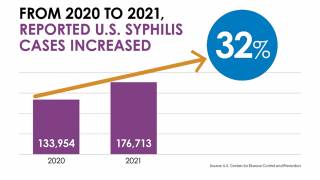Gonorrhea Risk Reduced with Oral Antibiotic

The number of sexually transmitted infections (STIs), such as chlamydia, syphilis, and gonorrhea, has recently increased. And without STI preventive vaccines available, future trends appear disappointing.
However, the U.S. National Institutes of Health (NIH) recently announced a common treatment that could reduce these unfortunate infections.
The NIH stated on April 25, 2023, taking the oral antibiotic doxycycline within three days after unprotected sex reduced the risk of sexually transmitted infections among those at increased risk.
This approach is called doxycycline postexposure prophylaxis (doxy-PEP).
But some health experts have been concerned that preventive use of antibiotics could lead to antibiotic resistance which might reduce options for treating STIs and other bacterial infections.
To learn more, a team led by scientists at the University of California, San Francisco, and the University of Washington set out to measure the safety and effectiveness of doxy-PEP.
The phase 4 clinical study enrolled 501 adults considered at high risk for bacterial STIs, either men who had sex with men or transgender women. All had been diagnosed with a bacterial STI in the past year and reported having sex without using a condom in the past year.
In addition, they were either living with HIV or were taking or planning to take medication to prevent HIV infection.
Participants were randomly assigned to receive either doxy-PEP or standard care. Those in the doxy-PEP group were told to take a 200 mg doxycycline tablet as soon as possible, within 72 hours after condomless sex. In addition, participants were tested for STIs every three months and followed for one year.
The researchers found that the doxy-PEP group had a two-thirds lower incidence of syphilis, gonorrhea, and chlamydia than the standard-care group every three months.
And STIs were detected in about 10% of the quarterly tests administered to those in the doxy-PEP group, compared to about 30% in the standard-care group.
Gonorrhea was the most often diagnosed STI.
The incidence of gonorrhea per quarter in the doxy-PEP group was about 55% lower than in the standard-care group.
Chlamydia and syphilis were each reduced by more than 80%.
"It will be important to monitor the impact of doxy-PEP on antimicrobial resistance patterns over time and weigh this against the demonstrated benefit of reduced STIs and associated decreased antibiotic use for STI treatment in men at elevated risk for recurrent STIs," commented Dr. Annie Luetkemeyer, a co-leader of the study, in an NIH press release.
"Given its demonstrated efficacy in several trials, doxy-PEP should be considered as part of a sexual health package for men who have sex with men and transwomen if they have an increased risk of STIs."
Furthermore, these researchers found that the doxy-PEP group had a modestly higher proportion of doxycycline-resistant Staphylococcus aureus living in the nose after 12 months.
And the incidence of gonorrhea strains resistant to the antibiotic tetracycline, which is in the same antibiotic class as doxycycline, was 38.5% in the doxy-PEP group compared to 12.5% in the group with standard care.
This finding suggests doxy-PEP could be less effective in preventing gonorrhea with existing tetracycline resistance; however, the number of available gonorrhea cultures was low.
Their results were published as an Original Article in the New England Journal of Medicine on April 6, 2023.
Previously, the DoxyPEP phase 3 study examined the incidence of gonorrhea, chlamydia, and syphilis and found that doxycycline reduced STI risk by 66%. This study also highlighted the benefits of vaccination with GSK's Bexsero® (MenB-4C) vaccine.
Precision Vaccinations post additional STI treatment and vaccine news.
Updated: Title and grammar edits on April 30, 2023.
Our Trust Standards: Medical Advisory Committee
























